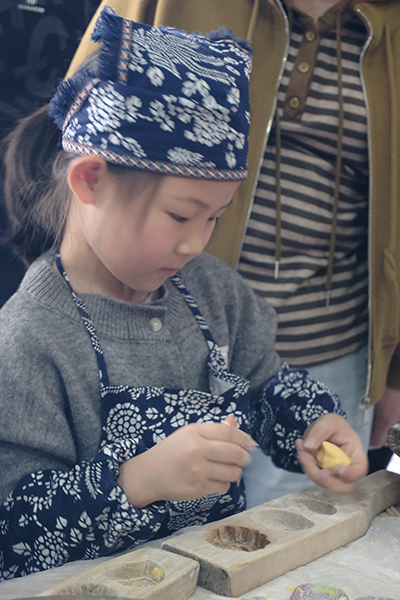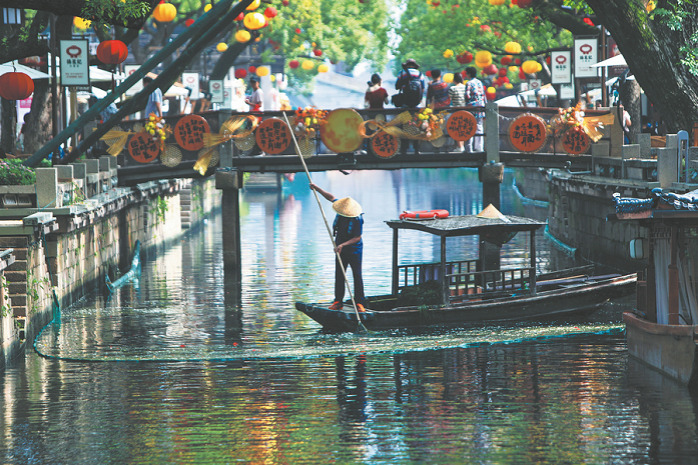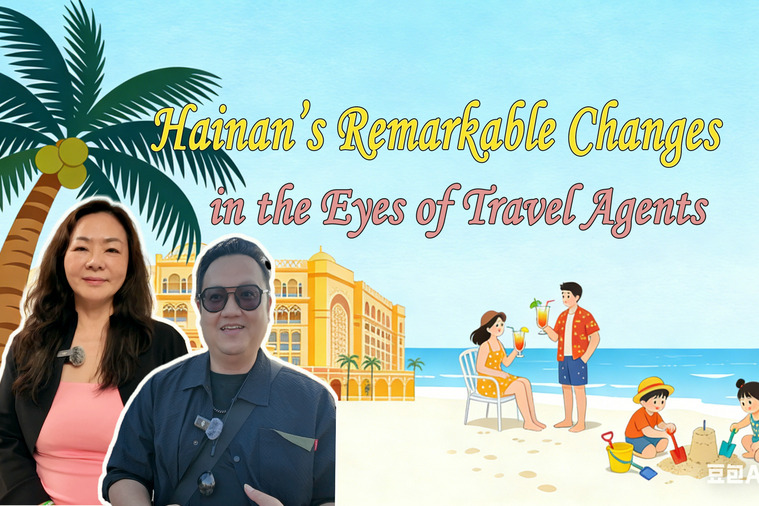Village keeps cultural heritage flourishing
Traditional ways of life preserved by dedication of inheritors, Yang Feiyue reports in Jiaxing, Zhejiang.


Delicate craft
Now in his 70s, Zhang Jinquan has dedicated over 50 years to perfecting this delicate craft, also recognized as Jiaxing's intangible cultural heritage in 2009.
The art form dates back to at least the Yuan Dynasty (1271-1368), originally created to produce decorative rice cakes for festivals, weddings and ancestral worship.
Zhang Jinquan learned the craft as a teenager from family members, painstakingly copying traditional patterns like the "three sacrificial animals" motif featuring a pig's head, carp and rooster.
"In hard times, these sugar cakes replaced real sacrificial offerings," Zhang Jinquan explains, recalling how poor families during the late Qing Dynasty (1644-1911) used the imprinted cakes in place of actual meat during religious ceremonies.
Each mold begins as a block of camphor wood, the preferred material for its resistance to cracking.
With practiced hands, he transforms these raw materials into functional artworks, typically completing three molds in a day that sell for about 35 yuan each.
The process demands absolute precision.
"The challenge lies in replicating every detail of the ancestral designs exactly. One wrong cut can ruin the whole piece," he says.
To appeal to young people today, he has continued to innovate, creating contemporary designs like his popular Zodiac series and collaborating with local institutions on various themed molds bearing slogans like "Obey the Law" and "Never Forget Our Mission".
Now semiretired, Zhang Jinquan splits his days between carving and teaching, determined to preserve this slice of cultural heritage in the Jiangnan region.
"As long as there are people willing to learn, I'll keep teaching," he says.
"These patterns carry our history, and they deserve to be remembered."
Like Zhang Jinquan, the boat maker Zhang Laisheng has also actively been answering the call to build new boat models or restore ancient ones across Jiaxing, in his efforts to preserve the tradition.
Apart from the time at the boat-making workshop, he has also taught local youth, visiting design students, even curious travelers.
"Some come seeking to learn, while others just want to feel the tradition," he notes, adding that he would hold no reservations about imparting the details of the craft.
"It won't last unless we pass it on," he says.
"It's my way of clinging onto a big part of my life, the part that I've been familiar with for so long."

































